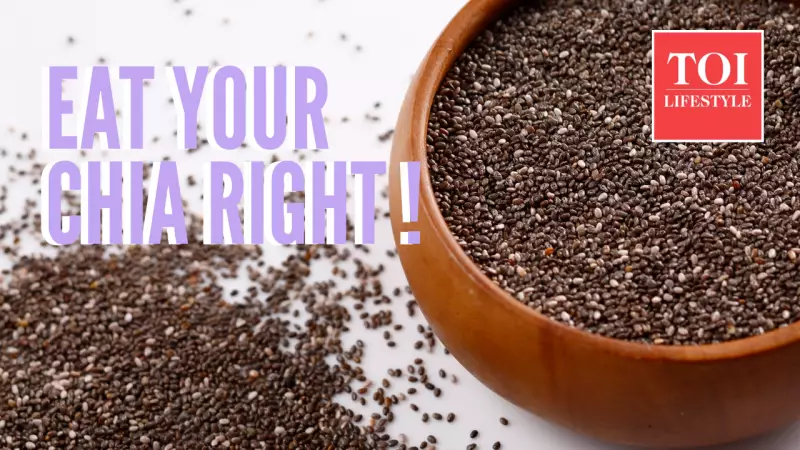
Chia seeds have long been celebrated as a nutritional powerhouse, but recent expert advice suggests that how you consume them matters just as much as including them in your diet. A Harvard-trained medical professional has issued important warnings about potential risks and revealed the optimal methods for enjoying these tiny seeds.
The Hidden Danger of Dry Chia Seeds
Dr. Saurabh Sethi, a gastroenterologist with Harvard training, has highlighted a significant health concern regarding improper chia seed consumption. According to his professional assessment, eating chia seeds in their dry form can pose serious risks to your health.
The primary danger lies in chia seeds' remarkable ability to absorb liquid. Scientific studies confirm that these tiny seeds can absorb up to 27 times their weight in water, transforming into a gel-like substance. When consumed dry, they can begin this expansion process in your esophagus, potentially causing discomfort and, in severe cases, creating blockages that require medical intervention.
Clinical case reports have documented instances where dry chia seeds expanded within the esophagus, leading to obstructions that needed professional medical care to resolve. This makes proper preparation crucial for safe consumption.
Three Healthy Ways to Enjoy Chia Seeds
Dr. Sethi doesn't just highlight the risks - he provides three delicious and nutritious solutions for incorporating chia seeds into your diet safely while maximizing their health benefits.
1. Creamy Chia Pudding
This method transforms chia seeds into a delightful dessert or breakfast option. To prepare, simply soak one tablespoon of chia seeds in half a cup of plant-based milk such as almond or coconut milk. Allow the mixture to sit for at least two hours, though overnight soaking produces the best results.
During this soaking period, the seeds absorb the liquid and develop a creamy, gel-like consistency that naturally thickens into pudding. This preparation not only enhances the texture and flavor but also ensures the nutrients become more bioavailable. You can customize your chia pudding by adding fresh fruits like berries or bananas for extra nutrition and taste.
2. Refreshing Chia Fresca
For a quick and hydrating option, chia fresca offers an excellent solution. Mix one tablespoon of chia seeds with a cup of water and let it stand for approximately 15 minutes. The seeds will form a slightly gelled texture that's pleasant to drink.
Dr. Sethi recommends adding a squeeze of fresh lemon juice to this mixture. The lemon not only provides vitamin C but also aids digestion. This simple drink serves as an effective hydration tool while delivering digestive benefits from the chia seeds' fiber content.
3. Nutrient-Packed Chia Smoothie
Smoothies provide perhaps the most versatile way to incorporate chia seeds into your diet. Begin by pre-soaking one tablespoon of chia seeds in a small amount of water or milk for 10-15 minutes. Then blend these soaked seeds with your choice of fruits, plant-based milk, or yogurt.
According to Dr. Sethi, this method significantly boosts the smoothie's nutritional profile by adding extra fiber, omega-3 fatty acids, and protein. The combination with other foods enhances both the flavor and your body's ability to absorb the nutrients effectively.
Maximizing Nutritional Benefits
Chia seeds deserve their superfood reputation, being packed with fiber, plant-based omega-3 fatty acids, protein, and various essential micronutrients. However, proper preparation is key to unlocking these benefits while avoiding potential health risks.
Dr. Sethi emphasizes that combining chia seeds with other foods through these methods not only improves taste but also enhances nutrient absorption. The soaking process makes the nutrients more accessible to your body, ensuring you get the full nutritional value from these powerful seeds.
By following these expert recommendations from a Harvard-trained gastroenterologist, you can safely incorporate chia seeds into your daily routine and enjoy their numerous health benefits without any of the risks associated with improper consumption.





